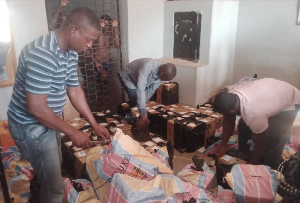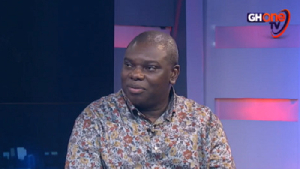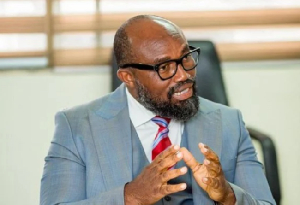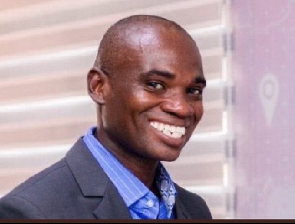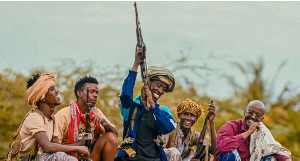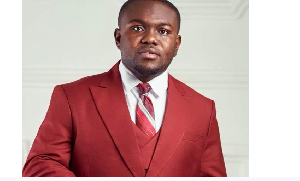People with physical, mental and sensory impairments are more often treated appallingly by the society. Disabled people are usually excluded from any meaningful education; endure hardship (left to fend for themselves) and stigmatised by the society.
It is pertinent to note that the United Nations Charter [1] affirms the essentiality of “a universal respect for and observance of, human rights and fundamental freedoms for all without distinction”.
Disappointingly, our Politicians are ignobly dragging their feet in removing “the glass ceiling” by refusing to ratify the UN Convention for the rights of persons with disabilities. This is disingenuous gesture on the part of our politicians, notwithstanding the colossal barriers confronting persons with disabilities in Ghana. The United Nations Convention on the rights of persons with disabilities; is an international agreement which requires that governments around the world uphold the rights of children and adults with disabilities. A rigorous search for countries that have ratified the Convention reveals our beloved nation (Ghana) is yet to ratify the Convention. Although, Ghana signed the proposal and the optional protocol on 30th March 2007, however it is yet to ratify the Convention.
This conspicuously explains why the People with disability in Ghana bill was promulgated almost four years ago, but its implementation is yet to be effected. They have not ratified the UN Convention, so, they are not obliged to enforce the Act. In my view, the promulgation of the bill was just a “fig leaf.”
It is worth pointing out that, the Ghana Parliament passed the Persons with Disability Bill on June 23rd 2006. The Disability Act, according to the Ghana Federation of Disabled (GFD), Has 12 main objectives, some of these would seek to create an enabling environment for the full participation of PWDs in national development, to ensure access of PWDs to education and training at all levels, to facilitate the employment of PWDs in all sectors of the economy, to promote disability friendly roads, transport, and housing facilities, to ensure access of PWDs to effective healthcare and adequate medical rehabilitation services, to ensure that women with disabilities enjoy the same rights and privileges as their male counterparts, to ensure that law enforcement personnel, in cases of arrest, detention, trial and confinement of PWDs, take into account the nature of their disabilities, and as well to ensure access of PWDs to the same opportunities in recreational activities and sports, as other citizens.
I’m cognisant of the fact that, the implementation of the Act will require huge resources; however, it can be done if our leaders’ stop the profligate spending. If we can afford $3m to help the Haitians, why is it that we cannot afford to help the “Haitians” in our midst?
This unnecessary procrastination shows the unwillingness attitudes of our leaders’ toward matters concerning people with disabilities. My question to our Politicians is, when are they going to ratify the United Nations Convention to pave way for the removal of the “glass ceiling”?
Sadly, the only National Assessment and Resource Centre for Children with Disabilities and Special Educational Needs in Ghana has been left to rot due to lack of funds (GHP news, 1/03/2010). In my humble opinion, there should be no excuses not to incorporate the needs of disabled people in our national budget. If we can reach out to Haitians in times of disaster, what prevents us from helping “the Haitians” in our midst?
It is about time our Politicians emulated the altruistic attitudes of people like former president of Mexico, Vincente Fox. During general debate of the fifty-sixth session of the General Assembly (2001),President Vincente Fox called upon the international community to combat poverty and social exclusion; he stated that societies should involve all citizens as stakeholders and that a just world must be inclusive of all groups. For that reason Mexico proposed establishment of a "Special Committee" to study the elaboration of an international convention on promoting the rights of persons with disabilities. Their findings resulted in the United Nations Convention for the rights of persons with disabilities.
It is rather unfortunate that some people have to spend the rest of their lives with- mental, sensory, and physical impairments which have substantial long term adverse effect on their abilities to carry out normal day to day living activities, notwithstanding the fact that, they need help and support in order to have any meaningful lives.
Disabled people are also entitled to remain under the sun like everybody else; nonetheless, they have been harshly ignored for a good number of years. Who are we to deny these people of their rights? I reckon some of them who believe in reincarnation will wish to live next time around as an able body person.
This reminds me of how former English football manager [Glenn Hoddle] lost his job for his unguided remarks about disabled people. He incoherently suggested that disabled people are cursed because of their previously unrighteous lives. This was patently preposterous statement from a man who believes in reincarnation. We should not lose sight for the fact that, misfortune can strike at anytime and on anyone of us therefore disabled people should remain part of our nation building process. Succinctly put, ‘everybody hurts sometimes’; so let’s have compassion for each other irrespective of physical deformities.
There are talented disabled people out there, who are given the opportunity, will use their innovative skills, together with their empathetic qualities at the disposal of the needs of others to help move the nation forward.
Unbelievably, disabled people in Ghana are still worse off in 21ST Century, and continue to beg on the streets corners without any meaningful welfare support, notwithstanding their vulnerabilities and huge barriers they have to “hurdle” within the labour market.
In Ghana today, disabled people are estimated to be around 10% of the national population; however they continue to face hardships, total discrimination, and extensive alienation from all sectors of the society. People with various forms of impairments have to put up with low standard education; chronic unemployment; lack of representation in the political arena; uneasy access to public places and social amenities. With all these “glass ceilings”, they find it increasingly difficult to enjoy their fundamental human rights.
Although, the 1992 fourth republican constitution provides framework for the protection of the rights of the disabled people, but sadly, they continue to endure injustices from the large section of the Ghanaian community.
The most pathetic and flagitious is, disabled people are treated appallingly by their own families; and the ill effect of such humiliations is disabled people lacking confidence and determination to face the challenges that confront them.
In Ghana today, disabled people arguably represent the highest proportion of the beggars on the streets. Therefore, does it not make sense for the Government to do more to help disabled people to acquire more employable skills by setting up a few more training/rehabilitation centres?
Disabled people should also try and abandon self limiting beliefs, which have been the standing blocks in their personal developments; in this way they will be able to stand on their feet and thereby, receive recognition from the society. I would take this opportunity to remind disabled people to take a cue from the achievements of Emmanuel Yeboah, who defied all odds despite his severe disability, and made his mark on the international scene.
It is worth remembering that disability is not inability; as many disabled people who had been given opportunities in their respective countries have made valuable contributions.
Majority of people portrait disabled people as useless and they only pay attention to their potential problems and flagrantly ignore their full potentials, but in my humble opinion, ability cannot be identified by just an appearance.
Someone may not have a leg to walk; an eye to see; a hand to lift objects etc. nonetheless, might still have something to contribute to the society. In this regard, does it make sense to exclude them from the nation building?
Let us take a person like David Blunket (former British home office secretary) for instance, he is a blind person, nonetheless, he seized the opportunity that was accorded him by the British society. He broke the “glass ceiling” and rose to arguably the second highest position in British politics.
I’m conversant with the fact that, some churches and individuals are doing their utmost best for disabled people. Typical example is Apostle Kojo Sarfo, who deserves commendations for the tremendous charitable work he has been doing. I believe the world would be a better place; if we join forces together and support the vulnerable ones in our midst.
Once again, my advice for the disabled people out there is to get rid of self limiting beliefs and remain tenacious, self assertive and finally, there will be light at the end of the tunnel.
I am really sorry for getting on your nerves but, being a bleeding heart and proponent of disabled empowerment, I cannot keep mute, but to speak on the issues affecting disabled people.
K.BADU.
Opinions of Tuesday, 9 March 2010
Columnist: Badu, K.


